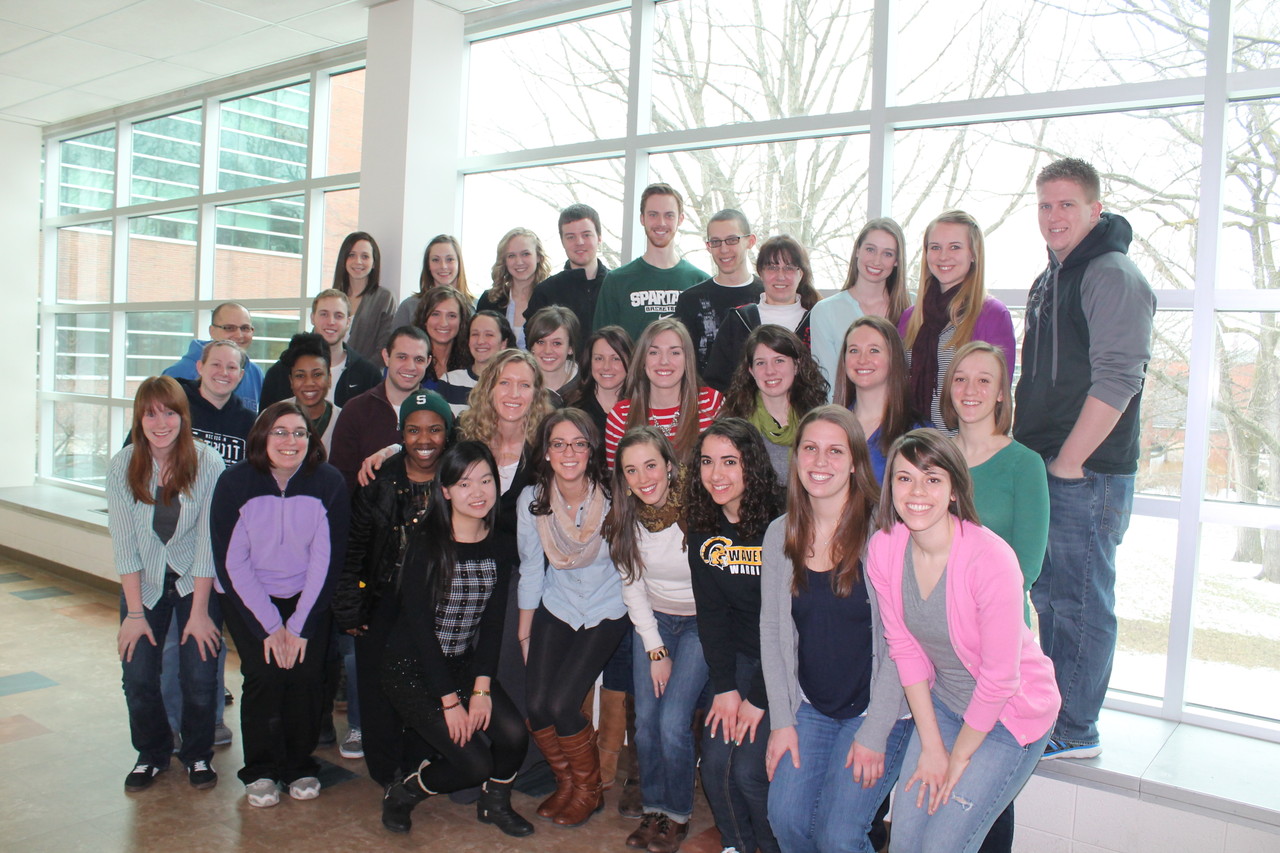2014-2015 MSU Secondary Mathematics Interns
2012-2013 MSU Secondary Mathematics Interns
MSU secondary mathematics interns at the Museum of Mathematics in NYC, with the founder Glen Whitney
Professorial Assistant Justin Drwencke (B.A., 2012) presenting at PME-NA 2010
A core premise guiding my teaching in undergraduate, master's and doctoral courses in mathematics education is that learning to teach, conduct research, or become a teacher educator is a situative, collaborative process (Lave & Wenger, 1991; Putnam & Borko, 2000).
In courses for prospective mathematics teachers, I focus on incorporating activities that: (1) strengthen students' mathematical knowledge for teaching; and (2) hone abilities to teach lessons with high cognitive demand tasks that provide all students with equitable access to mathematics and to participate in conversations about mathematics. These competencies are core to Michigan State University's secondary mathematics teacher preparation program.
Secondary mathematics teacher candidates spend considerable amounts of time each week in school classrooms during the four mathematics methods courses in our program. This means not only that these placement classrooms are part of the learning environments where prospective teachers learn to teach, but their mentor teachers are fulfilling roles as teacher educators. Through the support of an MSU Lilly Fellowship in 2011-2012, I explored how to strengthen collaborations between prospective teachers, mentor teachers, and myself as an university-based teacher educator through the refinement of a structure for facilitating reflection upon practice in school classrooms --mentor-guided lesson study. More information about this activity can be found in this paper, to be presented at the 2013 North American chapter of the International Group for the Psychology of Mathematics Education (PME-NA) conference.
I also regularly teach courses in MSU's Online Master of Arts in Teaching and Curriculum program (see syllabus) and MSU's Graduate Program in Mathematics Education (PrIME). These courses have provided opportunities for me to connect my research on argumentation in mathematics education and developing MKT in teacher education to support emerging scholars, teacher educators, and teacher leaders in making the aims of mathematics education reform policy documents such as the Common Core Standards a reality in school classrooms. A complete list of courses I have taught can be found in my CV.



